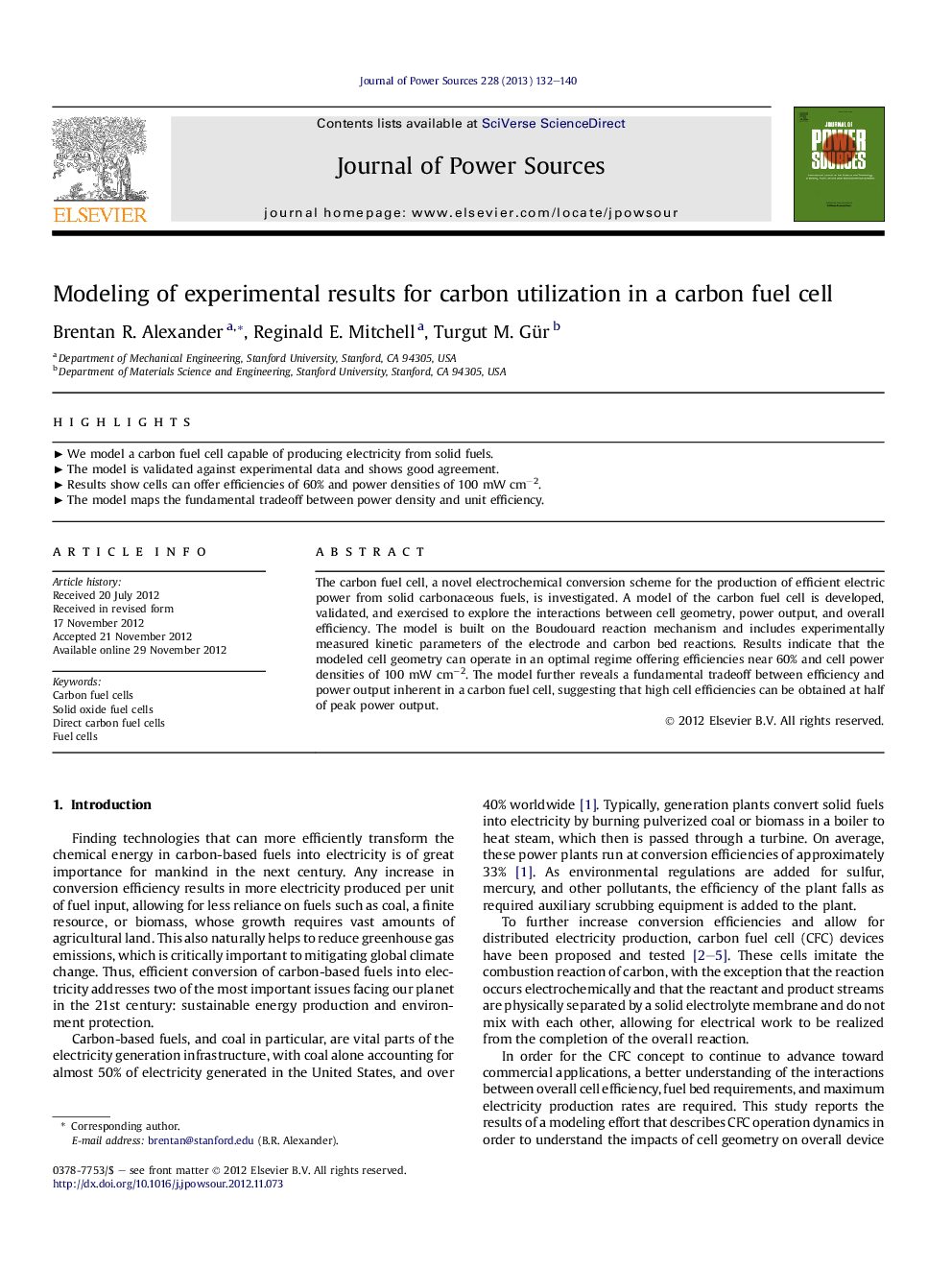| Article ID | Journal | Published Year | Pages | File Type |
|---|---|---|---|---|
| 1288194 | Journal of Power Sources | 2013 | 9 Pages |
The carbon fuel cell, a novel electrochemical conversion scheme for the production of efficient electric power from solid carbonaceous fuels, is investigated. A model of the carbon fuel cell is developed, validated, and exercised to explore the interactions between cell geometry, power output, and overall efficiency. The model is built on the Boudouard reaction mechanism and includes experimentally measured kinetic parameters of the electrode and carbon bed reactions. Results indicate that the modeled cell geometry can operate in an optimal regime offering efficiencies near 60% and cell power densities of 100 mW cm−2. The model further reveals a fundamental tradeoff between efficiency and power output inherent in a carbon fuel cell, suggesting that high cell efficiencies can be obtained at half of peak power output.
► We model a carbon fuel cell capable of producing electricity from solid fuels. ► The model is validated against experimental data and shows good agreement. ► Results show cells can offer efficiencies of 60% and power densities of 100 mW cm−2. ► The model maps the fundamental tradeoff between power density and unit efficiency.
